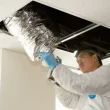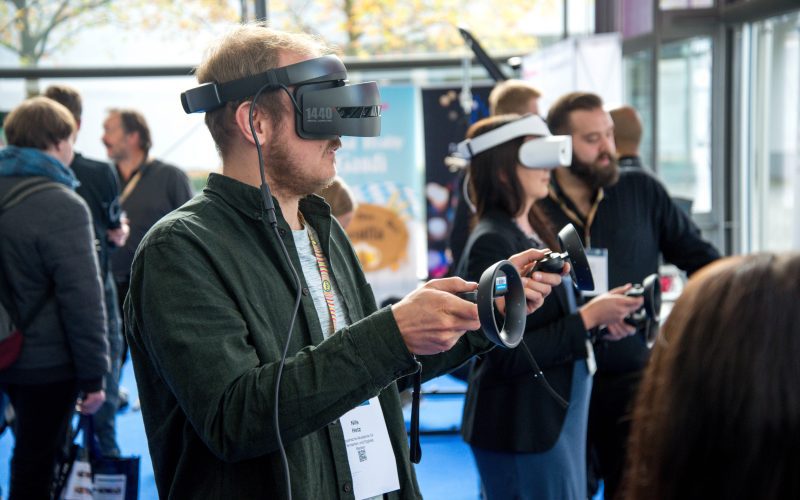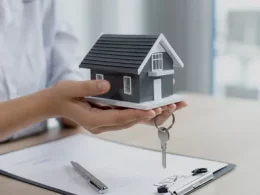As the world becomes increasingly concerned about climate change, more and more people are looking for ways to reduce their carbon footprint. One way that has gained popularity in recent years is through the use of smart home technology. Not only does this cutting-edge tech offer convenience and comfort, but it can also help homeowners save money on energy bills while reducing their impact on the environment. In this blog post, we’ll explore how smart home technology is shaping the future of sustainable living in real estate and why you should consider incorporating it into your own home. Get ready to discover a new level of eco-consciousness with us!
What is smart home technology?
Smart home technology is a broad term that can refer to any number of devices or systems that make your home more efficient, safe, and connected. Common examples include thermostats that learn your heating and cooling preferences and automatically adjust to save energy, or door locks that can be controlled remotely via your smartphone.
As the Internet of Things (IoT) continues to grow, so too does the range of smart home products and services available. This means that there’s no one-size-fits-all solution for creating a smart home – you can pick and choose the devices and systems that best meet your needs.
One key benefit of smart home technology is that it can help you save energy and money. For example, by automatically adjusting your thermostat based on your daily routine, you can reduce your energy usage without sacrificing comfort. In addition, many smart devices offer features that can improve your safety and security, such as alerts that notify you if a door or window has been left open.
Another big advantage of smart home technology is its convenience. Rather than having to fumble with keys or remember complex codes, you can use your smartphone to unlock your doors or turn off the lights – even when you’re not at home. And with voice-activated assistants like Amazon Alexa or Google Home, you can control your entire home with just a few simple commands.
Looking ahead, the future of smart homes is likely to be even more connected and
How can smart home technology make homes more sustainable?
There are many ways that smart home technology can make homes more sustainable. One way is by reducing energy consumption. Smart thermostats can learn your schedule and adjust the temperature accordingly, so you’re not wasting energy when you’re not home. Smart lights can also be programmed to turn off when you’re not in the room, saving even more energy.
Another way that smart home technology can make homes more sustainable is by reducing water consumption. Smart sprinklers can be programmed to water your plants only when they need it, and some even take local weather conditions into account to further reduce water waste. You can also install low-flow showerheads and toilets to save even more water.
Finally, smart home technology can help you reduce your carbon footprint by making it easier for you to recycle and compost. Many smart home devices come with built-in recycling and composting features, so all you have to do is put your recyclables or compost in the designated bin and the device will take care of the rest.
What are some of the challenges of implementing smart home technology in real estate?
As smart home technology becomes more prevalent, there are a few challenges that need to be addressed before it can be widely adopted in the real estate industry. One of the biggest challenges is compatibility between different devices and systems. For example, if a homeowner has a smart thermostat from one manufacturer and a smart security system from another, they may not be able to connect and control both devices from one app or interface. This can be frustrating for homeowners and may deter them from using smart home technology altogether.
In addition, many smart home devices require a strong and reliable internet connection in order to work properly. This can be a challenge in areas with spotty or limited internet coverage. Homeowners in rural areas or areas with poor internet infrastructure may not be able to take full advantage of all the features of their smart devices. Another potential issue is privacy and security concerns surrounding the collection and use of data by smart home manufacturers and service providers. As more and more devices are connected to the internet, there is an increased risk of hacking and data breaches. These concerns need to be addressed before smart home technology can be fully integrated into the real estate industry.
How might the future of sustainable living be affected by smart home technology?
The future of sustainable living is likely to be affected by smart home technology in a number of ways. For one, as homes become more energy efficient, residents will save money on their utility bills. This could lead to more people choosing to live sustainably, as they would see the financial benefits of doing so. Additionally, smart home technology can help homeowners monitor and reduce their energy consumption, which would further contribute to sustainability. Another way that smart home technology could impact sustainable living is by increasing the use of renewable energy sources. Solar panels and wind turbines are becoming more affordable and efficient, and homeowners with these technologies installed would be able to offset a larger portion of their energy use with renewables. Finally, smart home technology can help create more connected communities where people can share resources and information about sustainability. By working together, we can create a more sustainable future for all.
Conclusion
Smart home technology is changing the way we live and interact with our homes. By incorporating automation, energy efficiency, and sustainable living practices into your home design you will have a comfortable environment for years to come. It’s important to think about how smart tech can help you achieve your goals of making your real estate more efficient and cost-effective long term. Sustainable living in real estate is becoming increasingly popular due to its ability to reduce waste and costs while providing convenience, comfort, and peace of mind for homeowners now and in the future.












